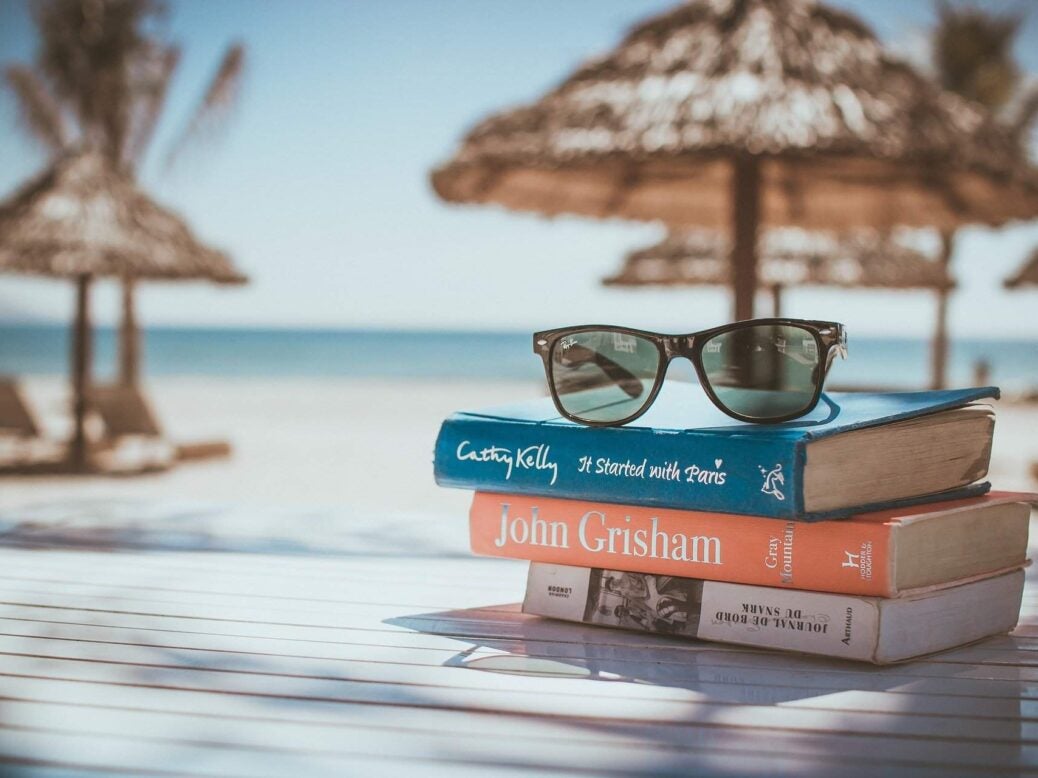
Sam Leith discovers the pleasures of literary retreats for Spear’s
One of the welcome and unexpected things the digital age has brought us is a renewed yearning for analogue pleasures. With everything atomised, dematerialised, scattered in space and time, we all start to yearn for the physical, the communal, the here and now. As digital music becomes (essentially) free, piped privately into every isolated set of headphones, more and more people will pay to go to live concerts, festivals and happenings. As whole seasons of TV are now dumped online at once for instant digital bingeing, those shows that drip-feed us – so everyone is snuggling up for the latest episode on Sunday evening – are becoming ever more popular.
And so it is with books. Witness the literary festivals which have sprung up in every hamlet and bus stop and Portakabin in the country – giving you the chance to handle a hardback and get a physical signature from a flesh-and-blood author. We all want a bit of what Walter Benjamin, in his essay on art in the age of mechanical reproduction, called ‘the aura’. So it was in search of an aura the other day that I went to try out a new sort of idea in tourism: a reading retreat.
I say ‘new’. It’s new-old. Perhaps the most famous reading retreat in history, after all, was two centuries ago, when Byron and his pal John Polidori rented the Villa Diodati near Lake Geneva and had the Shelleys round for a sleepover. Rained in for three days, the company turned to reading each other ghost stories… And then trying their hands at writing some. The guest-list being what it was, what came out of it was Frankenstein, The Vampyre and a canto or so of Childe Harold.
This one could only hope to aspire to match its illustrious predecessor – but they certainly gave it a fair wind. Item one: the weather – sunshine and sea breeze. Item two: the location – the Costa Navarino coastal resort in the south-western Peloponnese. And item three: the perfect host – the novelist Madeline Miller, author of the Orange Prize-winning Song of Achilles (a retelling of the Iliad in the voice of Patroclus) and, more recently, Circe (a gripping feminist reading of the pig-conjuring witch whom Odysseus encounters in the Odyssey).
Over nearly a week, a group of no more than about two dozen guests – Miller superfans, curious amateur Classicists and aspiring writers among them – would get the chance to learn from the great woman. She did talks, lectures and Q&As – double-handers, in many cases, with distinguished local scholars of Greek tragedy or archaeology. She hosted writing workshops where her group got the chance to write and share micro-adaptations of ancient myths. (Narcissus on Instagram? Yup: I went for the low-hanging fruit.) She accompanied us on tours of local monuments such as Messini and Nestor’s Palace. It was small enough to be intimate: everyone got the chance to chat with Madeline, and you’d have to go a long way to find a more generous or thoughtful mentor-companion.
The other good thing is that the resort itself is comfortable and contains quite enough to do if your spouses and hangers-on are less interested than you in the literary qualities of Homeric epic. One of our number, for instance, was a middle-aged developing-markets-venturecapital type guy trailing in the wake of his Madeline Miller-fan wife. He was persuaded to come along for the golf and he seemed far from disgruntled with what he found.
And there aren’t just the golf courses, but all the paraphernalia you’d expect from a high-end resort – private plunge pools, games rooms and kids’ clubs and fluffy towels, expensive spa treatments, giant breakfast buffet with omelette stations, a whole range of restaurants from the chilled beachfront fish place to the superior kebabs in souvlaki to the eat-half-a-dead-sheep-on-a-wooden-plank type macho grill of Flame… you know, all THAT stuff. Google it. It’s very nice.
But we, as I say, were here for the literature. And that sort of face-time with a serious writer in a landscape so closely linked to her work was a proper thrill you couldn’t get online. Here we were, at one point, sitting in a circle at evening under an ancient olive tree, shooting the breeze about Medea (was she a bad girl – or, like Jessica Rabbit, was she just drawn that way?), interrupted only by the sporadic whirring of nearby golf-carts.
And there was properly chewy stuff to discuss: how alien is the worldview of the Ancient Greeks? How much can a modern version take from it – and how much can and must it push back? Where are the gaps into which you can insert your own explanations – how Circe learned her witchcraft; why she turned sailors into pigs; what were the power dynamics in her relationship with Odysseus?
You can, Madeline argued persuasively – and with examples from Anne Carson’s versions of Sappho to Margaret Atwood’s Penelopiad – put new wine into old bottles and create something heady and exciting. Something, you could say, that wires the ancient world, via the analogue vibes of Villa Diodati, right back into the present day. None of us wrote Frankenstein – but there again, none of us got turned into a pig, so we ended up ahead.
This article first appeared in the November/December edition of Spear’s. Visit here to subscribe. Sam Leith’s trip was organised by Travelgems
Related…
Sam Leith on why perfection is overrated
How did books become so utterly worthless?
Sam Leith: ‘Most theatre is a bit crap… bloody expensive – but sometimes sublime’






